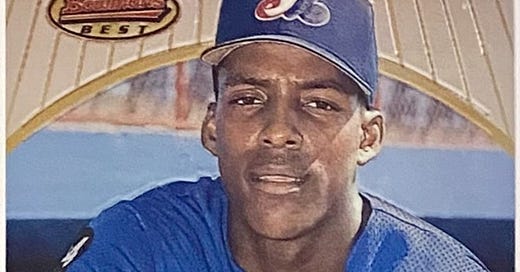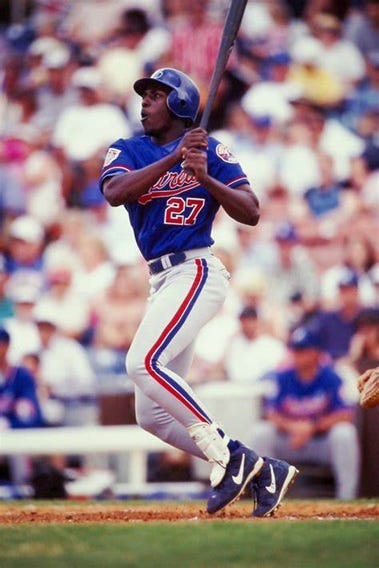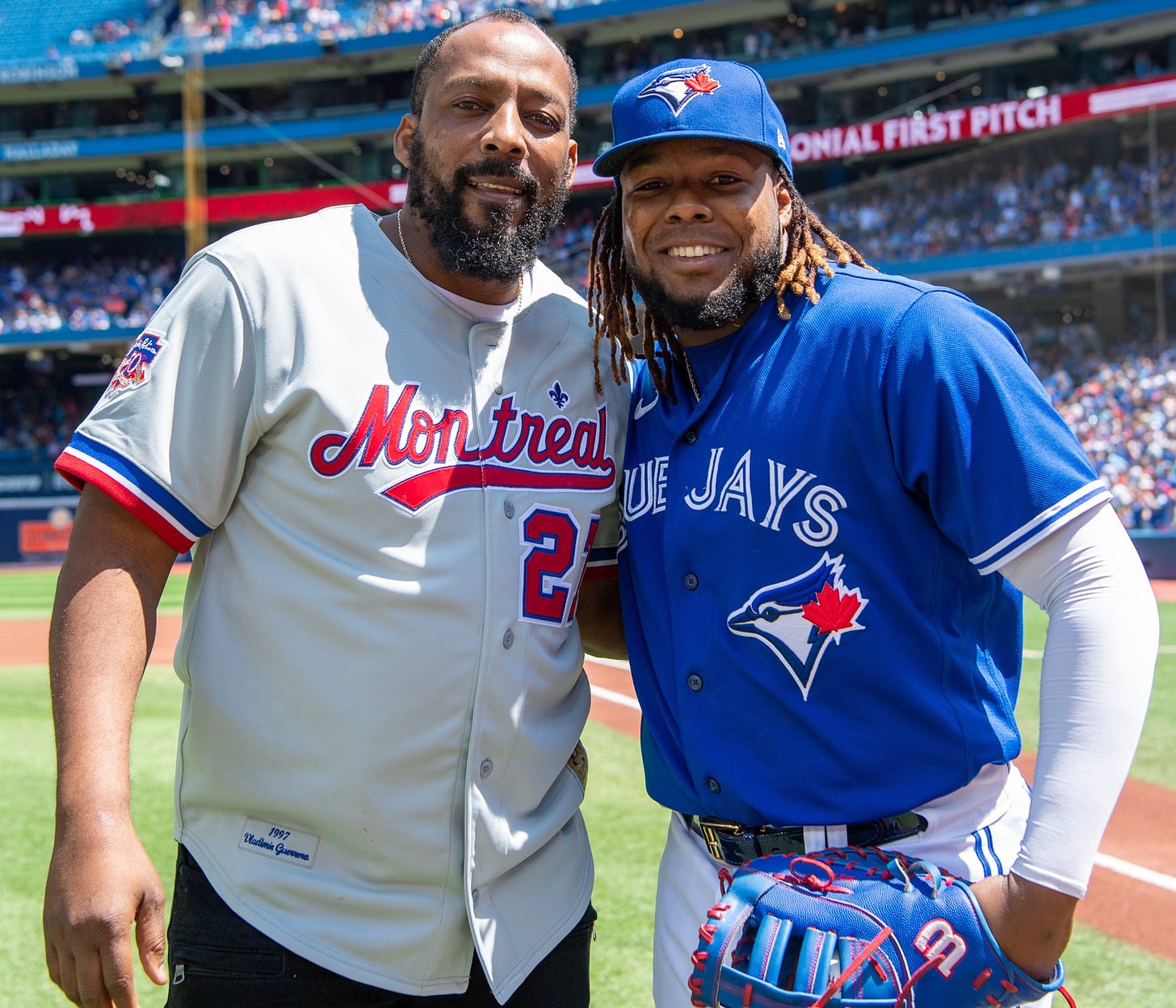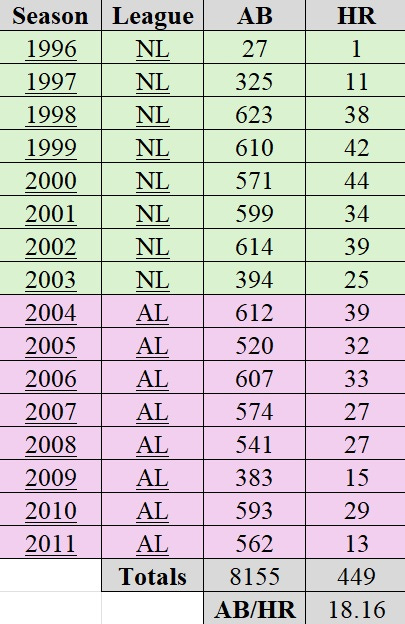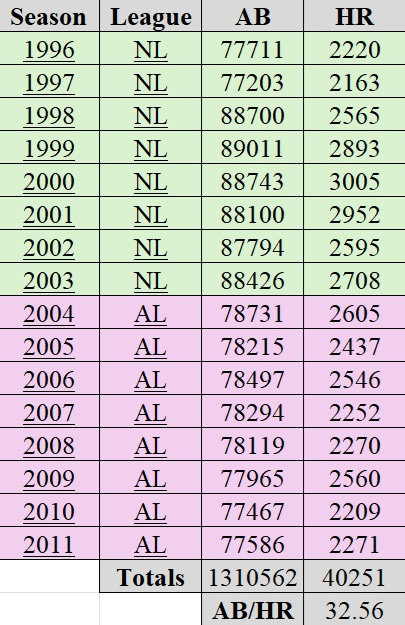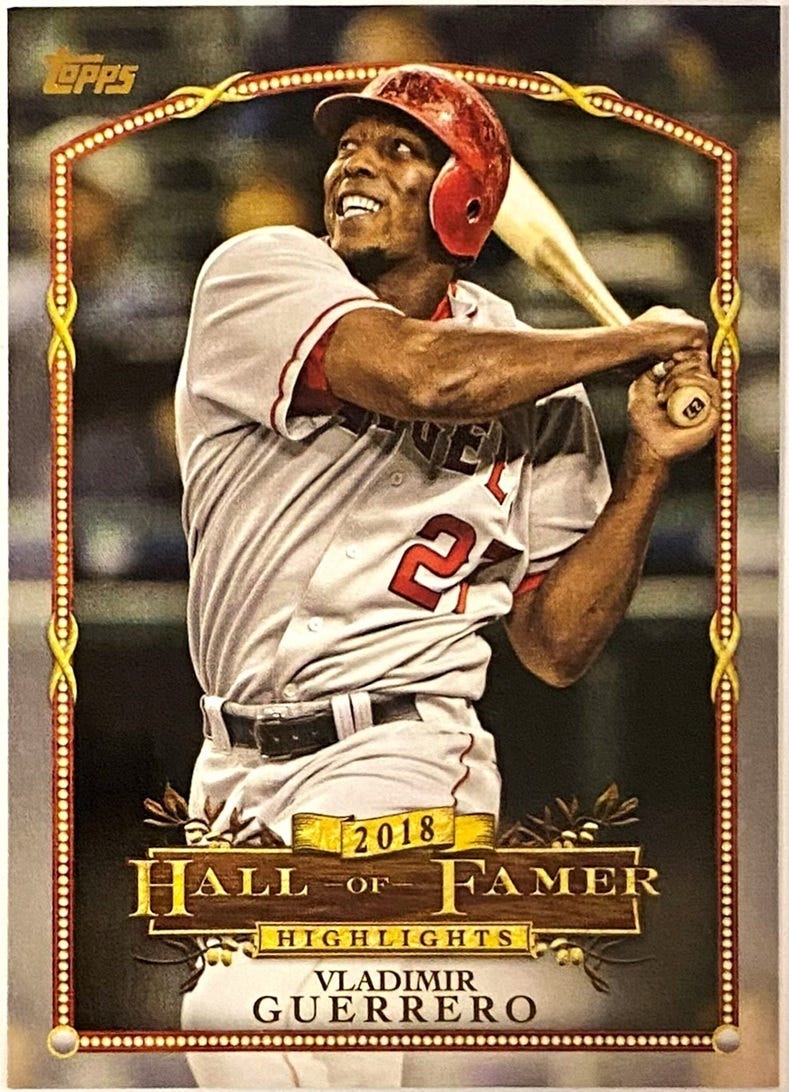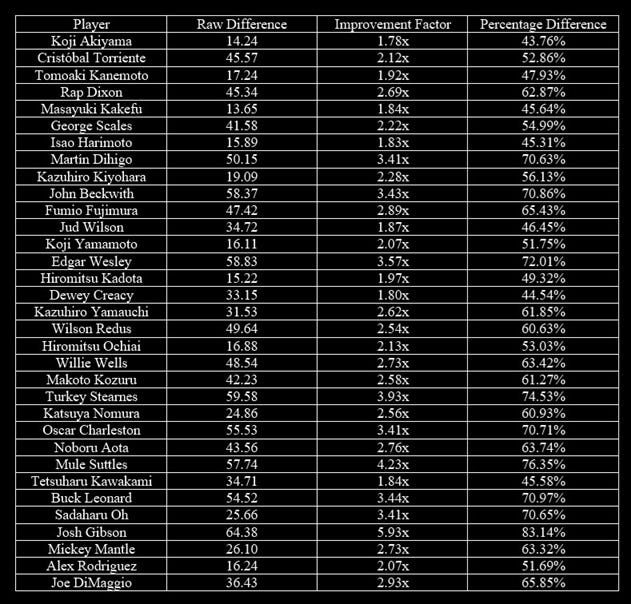This project aims to determine the greatest home run hitter of all time by comparing each slugger’s statistics to the average of their era using three formulas. The final adjusted stats will then be used to compare them head-to-head with other all-time greats.
Vladimir Guerrero will be the first legendary MLB slugger examined in this study. For a detailed biography of Guerrero, please click here.
Before analyzing Guerrero's career numbers, it's essential to recognize his accomplishments as a hitter. Let's examine his rankings in key hitting statistics throughout his career. Guerrero appeared on the MLB leaderboards in the following categories:
2000: #6 (.345)
2002: #5 (.336)
2004: #5 (.337)
2005: #8 (.317)
2006: #8 (.329)
2002: #10 (.417)
1999: #10 (.600)
2000: #5 (.664)
2002: #10 (.593)
2004: #8 (.598)
2000: #7 (1.074)
2002: #8 (1.010)
2004: #3 (124)
1998: #7 (202)
2000: #8 (197)
2002: #3 (206)
2004: #5 (206)
2006: #7 (200)
1998: #8 (367)
1999: #2 (366)
2000: #3 (379)
2002: #3 (364)
2004: #3 (366)
2006: #9 (335)
2001: #8 (45)
2007: #9 (45)
2000: #3 (11)
1999: #9 (42)
2000: #5 (44)
2002: #9 (39)
2004: #10 (39)
1998: #8 (82)
1999: #5 (84)
2000: #8 (83)
2004: #8 (80)
2002: #10 (128)
2002: #6 (145)
2004: #9 (140)
2002: #3 (296)
Now that we have a clear understanding of Guerrero's accomplishments, we can proceed with the career analysis. According to Baseball Reference, Guerrero’s official statistics reveal a total of 449 home runs over 8,155 at-bats resulting in an average of at-bats per home run 18.16 (AB/HR).
Vladimir Guerrero played in the National League (NL) from 1996-2003, he also competed in the American League (AL) from 2004-2011.
When aggregating the statistics from each of the seasons Guerrero competed in, the league totals include 1,310,562 at-bats and 40,251 home runs, resulting in an average of 32.56 at-bats per home run (AB/HR).
With this data, we can evaluate how Guerrero’s performance compared to the average NL/AL hitter of his era.
Raw Difference: 14.40
Formula: League Average – Player Career AverageImprovement Factor: 1.79x
Formula: League Average / Player Career AveragePercentage Difference: 44.23%
Formula: (League Average – Player Career Average) / League Average × 100%
AB/HR:
Guerrero hit a home run once every 18.16 at-bats on average. A lower AB/HR indicates a higher home run frequency, so this is a strong mark for a power hitter. The average MLB hitter during this period needed 32.56 at-bats to hit a home run, nearly double Guerrero’s rate.
Raw Difference:
Guerrero required 14.40 fewer at-bats per home run than the league average, a substantial gap that highlights his superior power.
Improvement Factor:
Guerrero was 1.79 times more efficient at hitting home runs than the average player.
Percentage Difference:
Guerrero’s AB/HR was 44.23% better (lower) than the league average, reinforcing his elite status as a power hitter.
Guerrero’s 18.16 AB/HR is exceptional compared to the league’s 32.56, placing him among the top home run hitters of his time. The 1.79x improvement factor and 44.23% difference indicate not just above-average performance but dominance in this metric.
These stats paint a picture of a standout slugger whose power output was exceptional, even in an era known for robust offensive production. His performance stands as a testament to his skill, consistency, and impact across both the National and American Leagues.
In our initial case study, we analyzed the careers of prominent Japanese and Negro League sluggers, alongside MLB greats Mickey Mantle, Alex Rodriguez, and Joe DiMaggio for comparison.
Now, let's compare Guerrero’s career statistics against these baseball legends to gain a clearer perspective on how he stacks up.
Guerrero's career statistics closely mirror those of Japanese legend Koji Akiyama. Akiyama hit 437 home runs and had 7,997 at-bats. His Raw Difference was 14.24, with an Improvement Factor of 1.78x and a Percentage Difference of 43.76%.
If you find this content valuable and would like to support the ongoing studies and articles, your contributions via CashApp are truly appreciated.
Your support helps fund the tools, research, and time dedicated to these projects. Every contribution, no matter the size, plays an important role in keeping this work going.
If you're unable to contribute financially, sharing this article on your social media (X, Facebook, etc.), emailing it to a friend, or texting the link to a fellow baseball fan is just as valuable.
Thank you for your support!

